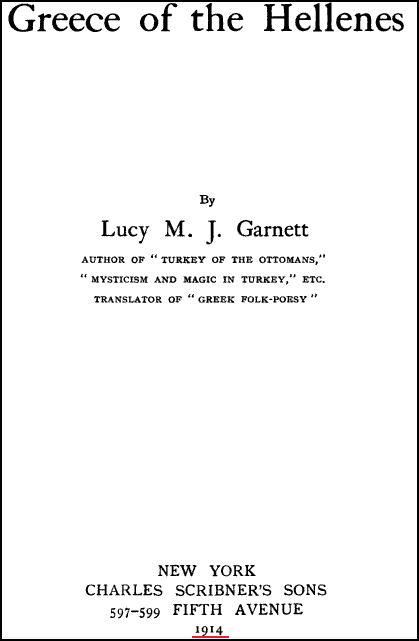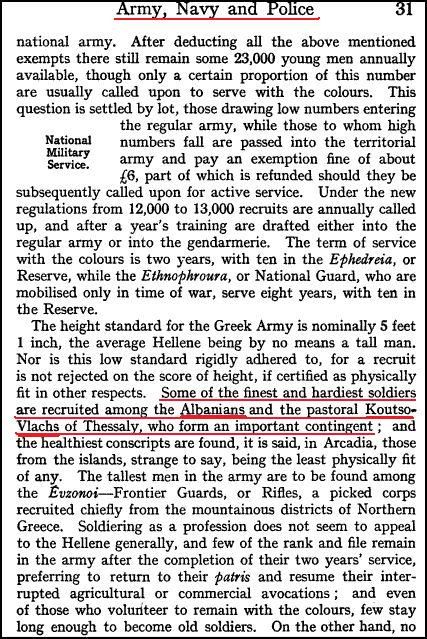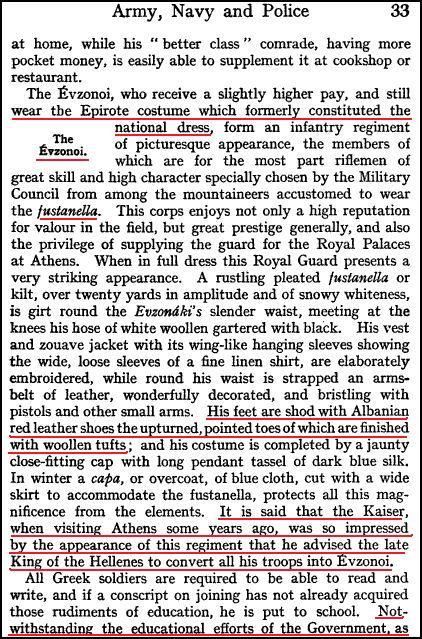Knowing our vicinity to Inannina, we ragged striplings, many of thern not more were now impatient to obtain the first than seven or eight years of age. The view of that city, which is long concealed old schoolmaster was pleased with the from the eye by the low eminences traattention given to himself and his scho- versing the plain. At length, when hilars, and endeavoured to rouse them to tie more than two miles distant, the greater efforts of display; which here, as whole view opened suddenly before us; a with boys everywhere else, had simply magnificent scene, aad one that is stili the effect of producing more loudness of almost single in my recollection. A speech. large lake spreads its waters along the Santa-maura. base of a lofty and precipitous mountain, Santa-Maura, after partaking in all the which forms the first ridge of Pindus on successive fortunes of the Seven Isles, was this side, and which, at I had afterwards captured in April 1810 by the English, reason to believe, attains an elevation of after their previous occupation of Zante more than 3,500 feet above the level of and Cephalonia. The castle, which was the plain. Opposed to the highest sumgarrisoned by 800 French and Italian mit of this mountain, and to a small troops, held out for nine days, the block- island which lies at its base, a peninsula ade and bombardment being continued stretches forwards into the lake Irom its vigorously during the greater part of that western shore, terminated by a perpenditime. Major Clarke, of the 35th regi- cular face of rock. This peninsula forms ment, fell in this siege, and was buried the fortress of Ioannina; a lofty wall within the fortress. A marble tomb- is its barrier on the land side; the stone, erected by the officers of the regi- waters which lie around its outer cliffs, ment, records at once his merits and his reflect from their surface the irregular fate. The garrison of Santa- Maura con- yet splendid outline of a Turkish seragsisted, when I was there, of a few coin- lio, and the domes and minarets of two panies of the 35th, and of five or six hun- Turkish mosques, environed by ancient dred men of the Corsican Rangers, a cypresses. The eye, receding backforce sufficient to guard the place against wards from the fortress of the peninsula, any sudden attack, either from Corfu or reposes upon the whole extent of the the Italian coast. The strength of the city, as it stretches along the western castle hus been much increased since the borders of the lake. Repose, indeed, it English obtained pos^ssion of it; and may not unfitly be called, since both the these improvements are still progressive, reality and the fancy combine in giving The population of this island does not to the scenery the character of a vast exceed 18,000 souh; its trade, which has and beautiful picture spread out before been somewhat increasing of late, con- the sight. No volumes of smoke, nor sists chiefly in the export of salt, of even the sounds of carriages and men, which between five and six thousand break into this description of the distant tons are said to be annually made in the view: the tranquillity of the Turkish chaisland: oil and wine are the otherjprin- racier is conveyed to the Turkish city cipal exports; the annual produce of the also, and even to the capital of the chief former being estimated at about 3,000 who governs the warlike and half-civilized barrels; of the latter at 1,000. The Albanian tribes. You are not here lookisland may he said also to traffic in ma- ing upon a lengthened and uniform mass nual labour, as a great number of the of buildings, so often the only charactepeasntits pass over every year to the ristic of an European town; but there is southern parts of Albania, to assist in before the eye a variety and a richness in the cultivation of the lend; for which the grouping of the objects, which is pe. service they are chiefly paid in produce, culiarly the feature in the cities of the The cattle and grain required fur the East. The lofty palaces of the vizier and of his ions, the minarets of numerous mosques, each surrounded by its grove of cypresses, which give something of appropriate snnctiiy to the place; the singular intermixture of houses and trees throughout every part of the city, a circumstance more striking from the want of wood in the general landscape; these, together with the noble situation on the lake, and the magnificence of the surrounding mountains, are the features which will most impress the stronger in •ppronching the capital of Ali Pasha.
There are sixteen mosques in Ioannina, each standing on an open space of ground, and generally surrounded by large cypresses. The northern mosque of the fortress is the most remarkable of these edifices; apparently as well in size, as in its fine situation, overhanging the hike. This was a point to which I often directed my walks, while residing in Ioannina. The magnificence of the view was one, but not the only, interesting circumstance about this spot. The silence uf the place, even close to so large a city; a sort of loneliness derived from the deep piazzas of the mosque, from the shade of tbe cypresses, and from the tomb-stones underneath them; the aspect of the Turk himself, slowly walking to tbe doors of the building, and scarcely breaking into this loneliness; Jhese are tbe circumstances which will interest the stranger in visiting the mosque of the fortress of Ioannina.
The number of Greek churches in the city does not exceed seven or eight, but tome of these are of considerable size. The services of the Greek religion, however, cannot here shew themselves in the same unrestrained way as in the Ionian Isles; and, though Ali Pasha is habitually tolerant in this respect, yet the usage of some centuries, and the number of Ma. hnmedans in the city, repress many of the external demonstrations which belong to this church elsewhere. Ioannina is the seat of a Greek archbishop, to whom several bishoprics are subordinate in the southern parts of Albania.
I am unable to speak with certainty of the population of this city, which I have heard variously estimated from twenty four to forty, or even fifty thousand. I should conjecture, from the best information I was able to collect, that the real number of inhabitants is about 30,000, exclusively of the Albanian soldiers who are quartered in the place. This population is composed of Greeks, Turks, Albanians, and Jews; the Greeks, probably, in largest proportion; and certainly most respectable in wealth and acquirements. They, too, are the eldest inhabitants of the city; many of their families, as it is said, having been established here for many centuries: they form the great body of merchants at Ioannina;[/size] some are settled officially about the court of the Vizier, as agents and secretaries ; while others, lower in rank, are found in the capacity of shopkeepers and artizans throughout tbe city.
TRADE OF 10ANNINA.
The most of the merchants here are men who have travelled much in Europe, are well instructed in European habits, and speak several of the continental languages. Their principal connections are with Germany and Russia, an intercourse which has been maintained for a long period. The port of Trieste has generally been a great channel of Greek trade, and many Greek houses are established there, with relation to other houses in Vienna, Leipsic, and various places in the interior of Germany. The Connection with Russia depends partly upon the relative situation of Greece; in some degree perhaps on the similarity of religion, and the political relation which Russia has had at times with this people. The principal branches of several Ioannina houses resided at Moscow previously to the destruction of that capital, and probably have since resumed their situation. A large amount of Greek property was lodged in the bank there, including the funds of several public institutions, schools, &c. We were in Ioannina at the time the news of the burning of Moscow arrived; and, living chiefly among merchants, could judge of the great sensation this event excited among them. The losses sustained by some individuals in the destruction of their magazines were very great.
LITERATURE.
The Greeks of Ioannina are celebrated among their countrymen for their literary habits, and unquestionably merit the repute they have obtained from this source. The literature of the place is intimately connected with, and depending upon, its commercial diameter. The wealth acquired by many of the inhabitants gives them the means of adopting such pursuits themselves, or encouraging them in others. Their connections in Germany and Italy, and frequent residence in these countries, tend further to create habits of this kind, and at the same time furnish those materials for literary progress, which would be wanting in their own country. At the present time, nearly two-thiids of the modern Greek publications are translations of European works; and whatever may be said of the powers of undirected genius, it is certainly better that for some time k should continue to be so. Such translations are often both suggested und executed abroad, and the presses at Venice, Vienna, Leipsic, Moscow, and Paris, are all made subservient to the active industry of these people in forwarding the literatnre of their country. The exlcu
Momiuly Mag, No, 271.
■wels in Greece, i£c. - 643
■ive traffic of the Greeks of Ioannina, is further a means of rendering this city a sort of mart for bonks, which are brought here from the continent when printed; and from this point diffused over other parts of Greece. At the dogana of Arta, I have seen numerous packages of hooks on their way to Ioannina, and in the city itself there are several shops, which have long been known for their extensive dealings in this branch of business.
There are two academies in the city ; at which, in sequel to each other, the greater part of the young Greeks at Ioannina are instructed. The Gymnasium, if such it may be called, of Athanasius Psalida, ranks as the first of these; and has acquired some reputation from the character of the master himself, who is considered B9 one of the chiefs of the literature of modern Greece. Jt is true, that there are others who have written more; but Psalida has travelled much, is master of many languages, a good classical scholar, a sharp-sighted critic, n poet, and versed besides in variovs parts of the literature and science of European nations. His only avowed work, as far as I know, is one intitled, " True Happiness, or the Basis of all Religious Worship," in which a general tone of sceptical opinion is the predominant feature. He is the author also, but anonymously, of a singular compound of prose and poetry, called Ejailsj A»mXir/iaT«, printed at Vienna in 1792i and probably may have partaken in other works w'ith which I am unacquainted. The funds of the academy which Psalida superintends, are lodged in the bank of Moscow. He has a great number of public pupils, whom he instructs not only in the languages, but also in history, geography, and various branches of general philosophy. He has one or two assistants in his labours; but it is the reputation of his own name which maintains the character of the school.




























